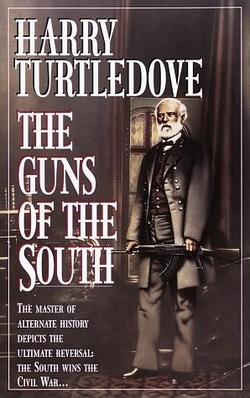But let’s face it – been there, done that – and these are pretty mundane and ordinary ways to off someone. If you want to kill someone in an interesting and unique way, especially if you’re a character in a movie or book, you have to let the creative juices flow, like Herb Hawkins (Hume Cronyn) and Joseph Newton (Henry Travers) do in Hitchcock’s Shadow of a Doubt (even if not in script format or what ended up in the film):
Herb (Cronyn): You folks are getting pretty stylish. Having dinner later every evening.
Joe (Travers): Ha ha!
Herb: l-l picked some mushrooms.
Joe: You don't say?
Herb: Mushrooms mean anything to you, Joe?
Joe: I eat 'em on my steak when I'm out and the meat's not good enough as it is.
Herb: If I brought you some mushrooms, would you eat 'em?
Joe: Suppose I would. Why?
Herb: Then I've got it. The worst I'd be accused of would be manslaughter. Doubt if I'd get that. Accidental death, pure and simple. A basket of good mushrooms and...two or three poisonous ones.
Joe: No, no. Innocent party might get the poisonous ones. I thought of something better
when I was shaving. A bath tub. Pull the legs out from under you, hold you down.
Young Charlie (Teresa Wright): Oh, what's the matter with you two? Do you always have to
talk about killing people?
Joe: We're not talking about killing people. Herb's talking about killing me,
and I'm talking about killing him.
Mrs. Newton/Emmy (Patricia Collinge): Charlie, it's your father's way of relaxing.
Young Charlie: Can't he find some other way to relax? Can't we have a little peace and quiet
without dragging in poisons all the time?
Mrs. Newton: Charlie! She doesn’t ' t make sense talking like that. I'm worried about her.
***
Of course, there’s always poison. Sure it’s been done before, but what hasn’t. So maybe get creative with it like this bit from The Court Jester:
Hawkins (Danny Kaye): I've got it! I've got it! The pellet with the poison's in the vessel with the pestle; the chalice from the palace has the brew that is true! Right?
Griselda (Mildred Natwick): Right. But there's been a change: they broke the chalice from the palace!
Hawkins: They *broke* the chalice from the palace?
Griselda: And replaced it with a flagon.
Hawkins: A flagon...?
Griselda: With the figure of a dragon.
Hawkins: Flagon with a dragon.
Griselda: Right.
Hawkins: But did you put the pellet with the poison in the vessel with the pestle?
Griselda: No! The pellet with the poison's in the flagon with the dragon! The vessel with the pestle has the brew that is true!
Hawkins: The pellet with the poison's in the flagon with the dragon; the vessel with the pestle has the brew that is true.
Griselda: Just remember that.
Uh, okay.
***
So let’s talk about some creative ways to kill someone, though this list will hardly be complete.
And here’s a starter list of many fun, fab and creative ways to die as found in movies:
Poison string – James Bond
Light Saber – Star Wars
Captive Bolt Pistol – No Country for Old Men
Painted to death (gold, of course) – Goldfinger
Odd Job’s Hat – Goldfinger / James Bond
Chain Saw – American Psycho and, of course, The Texas Chainsaw Murders
Infection – Night of the Living Dead, V for Vendetta
Getting stomped to death by Ryan Gosling – Drive
Getting shower rodded to death by Ryan Gosling – Drive
(I could just list all the killings in Drive here and have a pretty good list…)
Getting stabbed to death by an ear of corn – Sleepwalkers
Wood chippered – Fargo
Getting raked to death - Halloween 5: The Revenge of Michael Myers
Getting skulled by a Louisville Slugger – the Untouchables
Getting blasted from a cancer gun – Videodrome
Getting run over by Bozo – Toxic Avenger
Sliced and diced and decapitated by flying glass – The Omen
Getting impaled by a stalactite – Cliffhanger
Luca Brasi getting garroted in The Godfather
Steak-boned to death – Law Abiding Citizen
And let’s not forget the multitude of “fun” deaths in the Saw movie series with its mélange of creative and grisly deaths: http://sawfilms.wikia.com/wiki/List_of_deaths
This list of creative mayhem is by no means exhaustive nor complete. It’s barely the tip of the iceberg – in fact, I’m sure someone was iceberged to death in the movies…like in Titanic.
Oscar Wilde puts it pretty well in The Ballad Of Reading Gaol:
Yet each man kills the thing he loves,
By each let this be heard,
Some do it with a bitter look,
Some with a flattering word,
The coward does it with a kiss,
The brave man with a sword.
So what are some your favorite ways to off someone that you’ve read about or seen in a movie? Hmm…
***
Please check out my story Deserted Cities of the Heart in Akashic’s recently released St. Louis Noir.
Click here to: Subscribe to my Newsletter
###









































